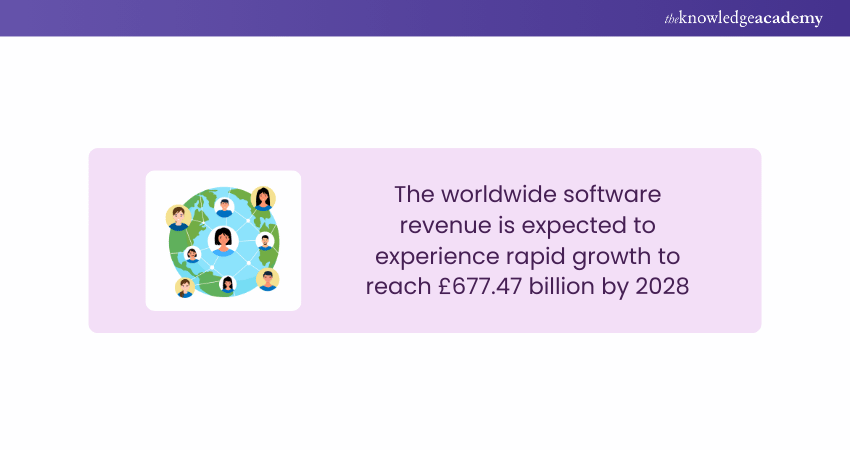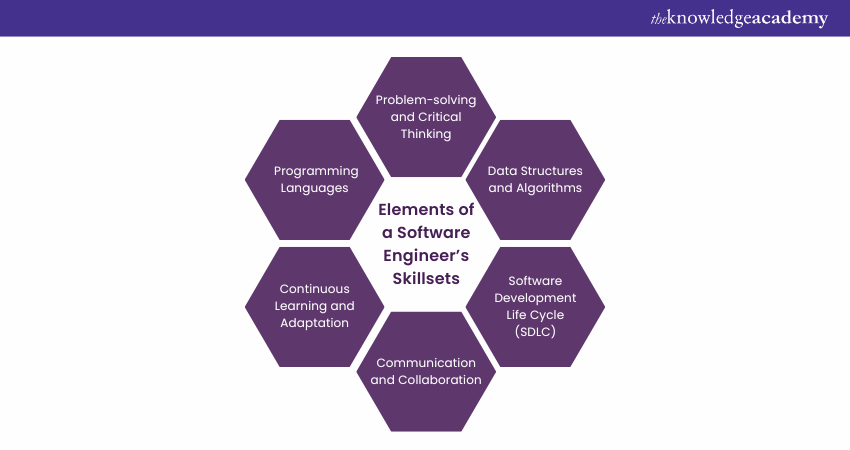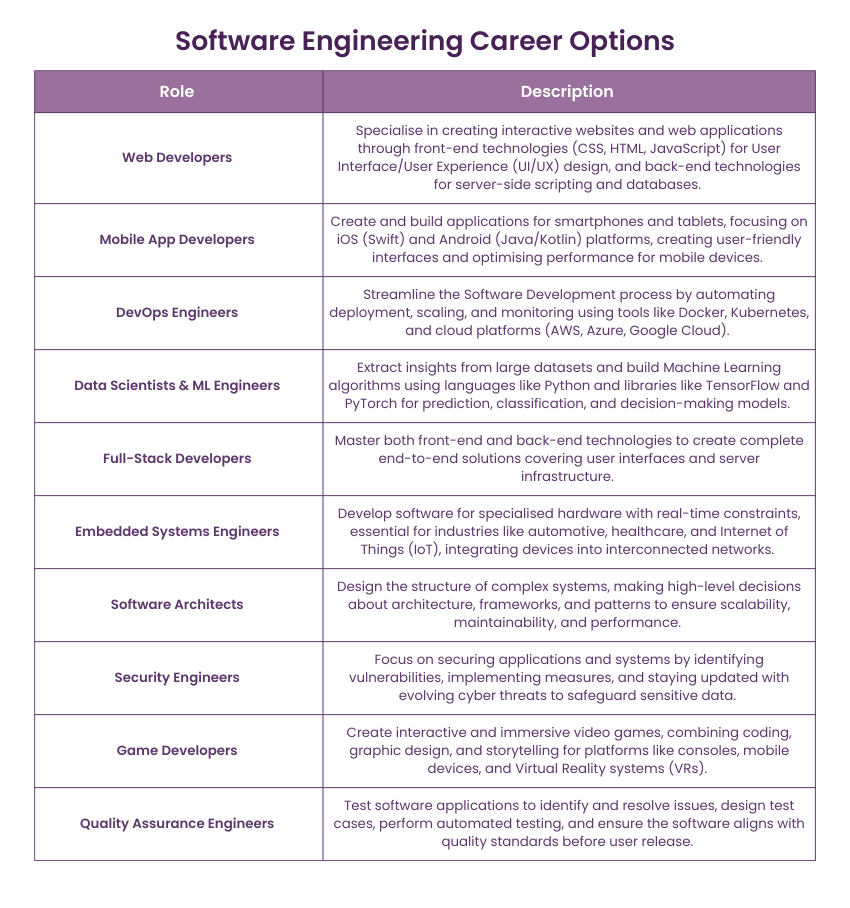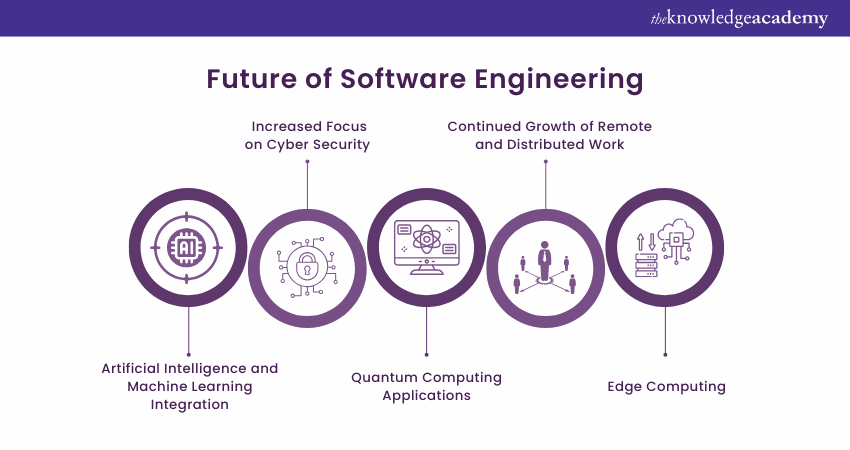We may not have the course you’re looking for. If you enquire or give us a call on 01344203999 and speak to our training experts, we may still be able to help with your training requirements.
We ensure quality, budget-alignment, and timely delivery by our expert instructors.

From shaping user experiences to driving innovation, Software Engineers are essentially the architects of our digital future. If you're intrigued by the idea of crafting code that powers applications, devices, and systems, Software Engineering is the ideal career and creative path for you. It's a career brimming with endless opportunities and innovation. But where should one begin? This blog offers a comprehensive answer, from the foundations of How to Become a Software Engineer to the exciting future of this field. So read on, master the backbone of modern business and code your way to the future!
Table of Contents
1) What Does a Software Engineer do?
2) Essential Skills for Software Engineers
3) Build a Strong Foundation
4) Career Paths for Software Engineers
5) The Future of Software Engineering
6) What Programming Languages Should You Concentrate on to Become a Software Engineer?
7) What Qualifications do You Need to Study Software Engineering?
8) How Important are Internships in Building a Career in Software Engineering?
9) Conclusion
What Does a Software Engineer do?
A Software Engineer’s day-to-day tasks vary depending on their specialisation and the clients or company they work with. Here are the core responsibilities:
1) Collaborating With Team Members: Software Development is not a solo endeavour, and the engineers need strong communication and teamwork skills. After learning what the client and development team need, they engage in technical design meetings and work with Project Managers, designers, and fellow developers.
2) Writing Code: This is the fundamental skill of translating ideas into functional code using programming languages such as Java, Python, or JavaScript.
3) Designing Software Architecture: This involves designing the overall system to ensure it’s scalable, efficient, and user-friendly.
4) Troubleshooting Errors: Software Engineers must be adept at detecting and fixing bugs. Every software needs to be checked before it’s released, and it can involve multiple rounds of testing and amending. Additionally, they must be able to keep accurate records of the changes they’ve made.
5) Staying up-to-date With New Technologies: The software industry evolves fast, and engineers must constantly learn and adapt to remain relevant. Software Engineers also play an active role in discovering emerging software technologies.
Beyond these primary skills, Software Engineers need specific technical expertise based on their area of focus. For instance, Web Developers might need expertise in Cascading Style Sheets (CSS), Hypertext Markup Language (HTML), and JavaScript frameworks, while Data Scientists will be proficient in statistical analysis tools.
Essential Skills for Software Engineers
Regardless of the employer and what software they're building, Software Engineers apply consistent skills when performing their work. These include:

1) Analytical skills: Software Engineers use analytical skills to solve problems in the most effective possible way. They also analyse and interpret data to find and rectify the source of errors.
2) Mathematical knowledge: Programmers need this to perform analyses on numerical data. Software Development uses the term 'mathematical logic' that computers utilise to draw conclusions, besides algebra.
3) Understanding Programming Languages: Coding is a daily part of a Software Engineer's job, so understanding how to code is paramount. Software Engineers may use a variety of coding languages to complete a project, as each language presents different engineering possibilities.
4) Attention to Detail: These engineers need to be extremely meticulous, as minor mistakes can result in a domino effect of bigger problems. They study minute details to ensure that every aspect of the software program is correct.
5) Innovative: Programmers employ innovation to differentiate the products they build from those of competitors. This also helps reduce the cost of products while increasing their value to customers.
6) Problem-solving Skills: Software Engineers use problem-solving skills to overcome limitations for the duration of the Software Development and design process. Consequently, they ought to have sturdy trouble-solving abilities.
7) Communication Skills: Impactful interpersonal and communication abilities are important because Software Engineers liaise with customers, stakeholders, and different builders while handing over initiatives. They will also be required to record every stage of the engineering system, which necessitates high-quality written communication skills.
8) Extensive Knowledge of Computers: Software Engineers can't do their job without a deep understanding of computers. Knowing how to build computers may not be necessary, but knowing how computers process information is vital.

Build a Strong Foundation
Embarking to become a Software Engineer is akin to constructing a building. A strong foundation ensures stability and longevity. Similarly, as an aspiring Software Engineer, building a robust foundation of skills, experience, and knowledge is crucial for your success in this ever-evolving field. As you prepare for your journey, exploring Software Engineer Interview Questions can provide valuable insights into the skills and knowledge areas employers seek. Consider the following:

1) Embark on personal coding projects that interest you, whether developing a simple web app, a game, or an automation tool. These projects provide hands-on experience.
2) Contributing to open-source projects is an effective way to work with experienced developers, learn from their code, and showcase your skills to a broader audience.
3) Seek internships or cooperative training with tech companies or startups. These opportunities provide insights into the industry and a chance to work alongside seasoned professionals.
4) Attend tech meetups, conferences, and online forums to connect with fellow Software Engineers, recruiters, and potential mentors. Networking aids you to stay updated on industry trends and leads to job referrals.
5) Embrace a mindset of continuous learning. Explore new programming languages, frameworks, and tools. Online courses, tutorials, and coding challenges keep you engaged.
6) Maintain a well-organised portfolio showcasing your projects, contributions, and skills. Use platforms such as GitHub to host your code repositories.
7) While an undergraduate degree in Computer Science is the basic path, a master's degree can deepen your expertise and open doors to specialized roles, including those that require knowledge of advanced techniques like Thread Testing in Software Engineering.
8) Technical prowess is crucial, but soft skills are equally important. As you navigate complex projects and interact with diverse teams, teamwork and adaptability become essential for success.
9) Seek out mentors—experienced Software Engineers who can provide guidance, talk about their experiences and provide advice on navigating the obstacles and opportunities within the field.
Explore our comprehensive Software Engineering Training and embark on a rewarding career in the world of technology.
Career Paths for Software Engineers
Software Engineering offers various career paths, each presenting unique challenges, opportunities, and avenues for specialisation. As you navigate your journey as a Software Engineer, exploring the diverse pathways available and aligning your skills and interests with the areas that resonate most with you is essential. Software Engineer Interview Questions can help you prepare for key challenges and opportunities in the field. Here are the promising career options for Software Engineers:

Discover the Key to Faster Feedback and Iteration: Learn About the Prototype Model in Software Engineering!
The Future of Software Engineering
The landscape of Software Engineering is a dynamic domain that continually evolves in response to technological advancements, societal shifts, and the ever-evolving requirements of the digital age. Among the foundational methodologies shaping this evolution is the Waterfall Model in Software Engineering, which provides a structured approach to software development. Here are some of the developments:

1) In Software Engineering, AI-driven tools will continue to automate tasks like code generation, bug detection, and optimisation. Machine Learning (ML) algorithms elevate applications' capabilities, making them more adaptive to user behaviour.
2) Software Engineers will be critical in designing secure systems, implementing encryption, and developing techniques to defend against evolving cyber threats.
3) Software Engineers will be tasked with developing algorithms and applications that harness the power of quantum computing to revolutionise fields such as cryptography and material science.
4) Software Engineers will continue developing and optimising Progressive Web Apps (PWAs), enabling businesses to reach users more effectively while reducing the friction between web and app environments.
5) Software Engineering teams have become increasingly distributed. Engineers must adapt to new collaboration tools, communication methods, and workflows that enable effective teamwork across geographical boundaries.
6) Software Engineers must consider the ethical implications of their creations, from data privacy and bias in algorithms to the societal impact of AI-driven systems.
7) Edge computing involves processing data nearer to the source, reducing latency and improving real-time performance. Software Engineers will optimise applications for edge devices, creating responsive and efficient user experiences (UX) in scenarios such as autonomous vehicles.
Master Agile tools and techniques in our Agile Software Development Training - Register now!
What Programming Languages Should You Focus on to Become a Software Engineer?
The following Programming Languages are essential for any aspiring Software Engineer:
1) JavaScript
2) Python
3) Go
4) Java
5) HTML
What Qualifications do You Need to Study Software Engineering?
You typically need the following qualifications:
1) High School Diploma and Bachelor’s Degree in Computer Science or a related field.
2) Participation in internships or co-operative training.
3) Certifications in specific technologies or methodologies like Amazon Web Services (AWS) and Agile
4) Advanced Degrees like a master’s degree or even a Doctorate of Philosophy (Ph.D.)
Get Started with COCOMO – Learn more about the COCOMO Model in Software Engineering and how it can enhance your project management skills.
How Important are Internships in Building a Career in Software Engineering?
Internships provide Software Engineering aspirants with an invaluable opportunity to cover the gap between academic learning and real-world application. Internships provide:
1) Practical experience
2) Professional Development
3) Networking
4) Industry Insights
Conclusion
In conclusion, becoming a Software Engineer involves learning, practice, and persistence. You can carve a rewarding career path by mastering programming skills, building a portfolio, and staying adaptable in a fast-changing industry. Whether starting from scratch or transitioning from another field, the steps on How to Become a Software Engineer, as outlined in this blog, will equip you with the right tools and insights to excel in this profession.
Elevate your skills with our Java Programming and Software Engineering Fundamentals Training – Sign up now!
Frequently Asked Questions
Is it Hard to be a Software Engineer?

Becoming a Software Engineer can be a challenge, but it's not impossible. The difficulty depends on your background, learning style, and dedication, and factors such as analytical and coding skills.
How is Software Engineering Different From the Web Development?

Software Engineering is broader and includes Web Development as a subset. Web Development is focused on developing and maintaining websites and web-based applications.
What are the Other Resources and Offers Provided by The Knowledge Academy?

The Knowledge Academy takes global learning to new heights, offering over 3,000 online courses across 490+ locations in 190+ countries. This expansive reach ensures accessibility and convenience for learners worldwide.
Alongside our diverse Online Course Catalogue, encompassing 19 major categories, we go the extra mile by providing a plethora of free educational Online Resources like News updates, Blogs, videos, webinars, and interview questions. Tailoring learning experiences further, professionals can maximise value with customisable Course Bundles of TKA.
What is The Knowledge Pass, and How Does it Work?

The Knowledge Academy’s Knowledge Pass, a prepaid voucher, adds another layer of flexibility, allowing course bookings over a 12-month period. Join us on a journey where education knows no bounds.
What are the Related Courses and Blogs Provided by The Knowledge Academy?

The Knowledge Academy offers various Software Engineering Courses, including the Systems Modelling Techniques Course and the Software Design and Architecture Course. These courses cater to different skill levels, providing comprehensive insights into Types of Requirements in Software Engineering.
Our Programming & DevOps Blogs cover a range of topics related to Software Engineering, offering valuable resources, best practices, and industry insights. Whether you are a beginner or looking to advance your Software Engineering skills, The Knowledge Academy's diverse courses and informative blogs have got you covered.
Upcoming Programming & DevOps Resources Batches & Dates
Date
 Systems Engineering Training
Systems Engineering Training






 Top Rated Course
Top Rated Course



 If you wish to make any changes to your course, please
If you wish to make any changes to your course, please


